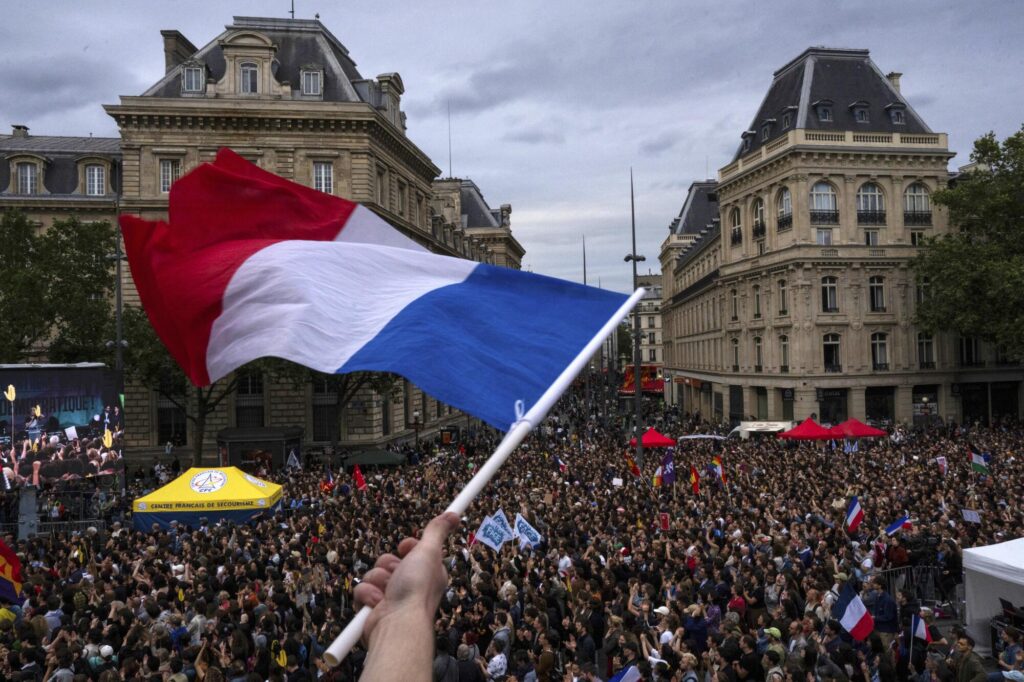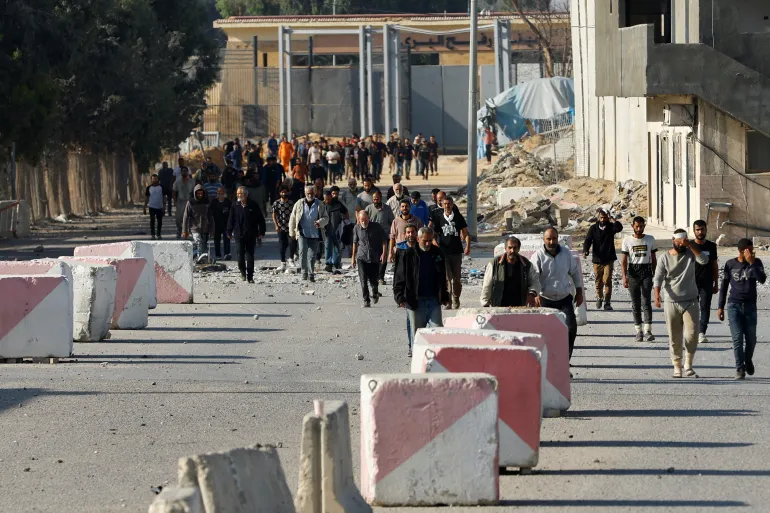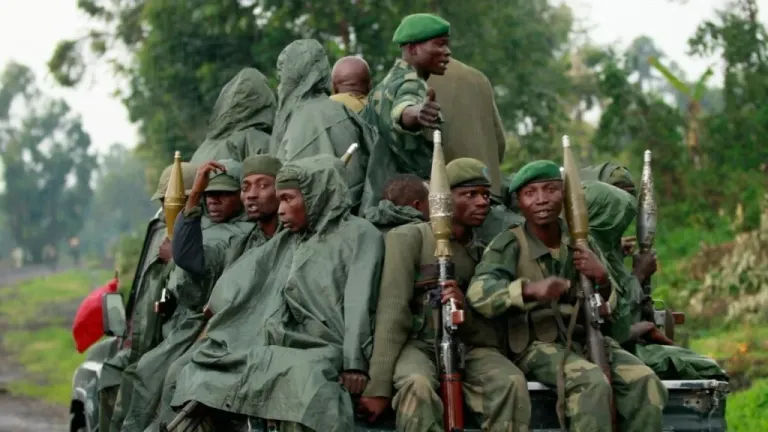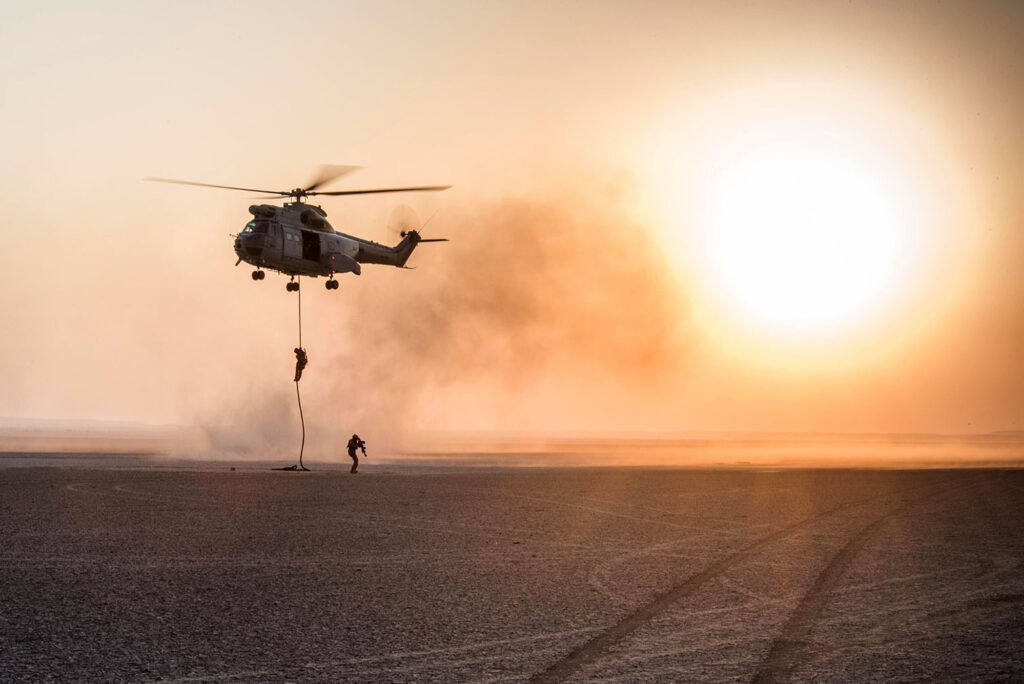
The military coup that overthrew Nigerien President Mohamed Bazoum on July 26 has proven as resolute as it was swift.
In the wake of the government’s rapid overthrow, Niger’s military administration has resisted diplomatic overtures from the US, other world powers and regional blocs aimed at restoring the country’s constitutional order, and has actively worked to entrench itself against any potential intervention.
Just over two weeks after the coup, Acting Deputy Secretary of State Victoria Nuland paid an unannounced visit to Niger, sitting down with military officials, including one of the self-proclaimed coup leaders Gen. Moussa Salaou Barmou, for talks aimed at restoring Bazoum’s government.
Her visit, conducted at the behest of Secretary of State Antony Blinken, ended without a major diplomatic breakthrough. Nuland acknowledged that her discussions with the “people responsible to this challenge to the democratic order” were “extremely frank and at times quite difficult because, again, we were pushing for a negotiated solution.”
The senior diplomat departed Niamey, the Nigerien capital, empty-handed as questions mount over whether there is still time to achieve a negotiated resolution to the crisis.
Ken Opalo, interim director of the African Studies Program at Georgetown University, believes the clock has already run out.
“I do not think that the coup can be unscrambled. Restoring Bazoum would only amplify perceptions of the many weaknesses of his administration (and that before him) – including the heavy-handedness and crimes committed by security forces, the failure to deliver on Nigeriens’ material needs, and accusations that the ruling party had entrenched itself by deliberately cannibalizing the opposition,” he told media in an email interview.
A similarly dour assessment was offered by Chester Crocker, a former assistant secretary of state for African affairs, who said “you don’t say never” to the prospects for the restoration of Niger’s democratic governance, but noted that “each day that passes makes it look more and more like one has to recognize that this is a coup d’etat.”
The State Department maintains that it “remains focused on diplomatic efforts toward a peaceful resolution to preserve Niger’s hard-earned democracy.”
“We all want a peaceful end to this crisis and the preservation of the constitutional order. This situation in Niger remains very fluid and we are closely monitoring it,” a department spokesperson said in an email exchange with media on the condition of anonymity.
To use force or not?
While Bazoum assumed office as a result of Niger’s first peaceful democratic transition of power, his time in office has been dogged by allegations of abuses.
Freedom House, a non-profit based in Washington that assesses political freedoms and human rights globally, said Bazoum’s Nigerien Party for Democracy and Socialism had been working to co-opt opposition parties, which it said “have been divided into several coalitions and face serious difficulties in challenging the former ruling party.”
In assessing Niger as “partly free,” Freedom House further pointed to government bans on some rallies in 2022, and occasional government efforts to restrict the activities of non-government organizations.
It also noted that the judiciary “is subject to executive interference,” and found that “rulings against opposition leaders and civil society activists have decreased trust in the judiciary.”
In the wake of the late July military coup, there has been a noted resistance within the Biden administration to any form of military intervention to restore Bazoum’s government, a stark departure from the strong backing for the use of force offered by France, Niger’s former colonial power.
Asked why Washington remains reticent to back the use of force, Opalo said the US is “principally” interested in ensuring “a modicum of stability” in Niger to ensure it can continue its counterterrorism operations in the nation, where it has stationed roughly 1,100 troops.
The US and France have both used bases in Niger to carry out operations against the Daesh/ISIS and al-Qaeda terror groups in the region.
Opalo dismissed suggestions that the divergence between Washington and Paris over the use of force to oust the military administration has anything to do with a rivalry, saying the US “prefers to have France as a force multiplier in West Africa.”
The US operates its second-largest base in Africa, known as Air Base 201, near the Nigerien city of Agadez and uses it to conduct drone operations in Niger and beyond. It also runs operations out of a base near Niamey.
ECOWAS ‘brinkmanship’
The Economic Community of West African States (ECOWAS) has repeatedly threatened to launch a military operation to restore Niger’s constitutional order, setting a publicly unspecified “D-Day” for the operation to begin should the military refuse to return power.
However, Opalo threw cold water on the prospects for such an intervention, saying that ECOWAS “does not have the capacity to carry out a successful operation” and would “not be able to stabilize Niger” if the military responds.
He termed the talk of invasion as “brinkmanship” aimed at forcing the military administration “to agree on a timeline for a return to civilian rule and to ensure that they do not harm Bazoum.”
“It is also a performative signal to their populations (and armies) that the region will not tolerate any more military coups. The US is likely quietly talking to Nigeria and other ECOWAS states to not cross the proverbial rubicon as far as an actual invasion goes,” he added.
The State Department spokesperson who spoke to Anadolu said ECOWAS leaders have “publicly indicated that military intervention is a last resort,” and maintained that diplomats are working with the regional bloc “to find a diplomatic solution.”
“Nigerian President (Bola) Tinubu also reiterated the importance of prioritizing diplomatic negotiations and dialogue as the bedrock to ECOWAS’ approach,” the spokesperson said.
“Democracy is the best foundation for development, social cohesion, and stability in Niger. We stand with the Nigerien people in working towards these goals.”
The Russia factor
Meanwhile, talks between Niger’s military and France aimed at the withdrawal of French troops from the West African nation remain ongoing as the former accuses Paris of meddling in its internal affairs.
Amid the diplomatic efforts, the Biden administration faces a stark choice over whether it will term the events in Niger a “coup,” a designation already applied by several countries around the world.
At stake for the State Department are restrictions enshrined in US law that would be triggered if such a determination is made, including the curtailing of certain forms of foreign assistance to Niamey, including a halt to all military aid.
However, a law known as Section 7008 does not establish a mandated timeline for the secretary of state to make a coup determination, allowing Blinken a wide window to continue diplomatic efforts.
Opalo said the State Department would “eventually” term the overthrow of Bazoum’s government a coup, but said “the US will try and buy as much time as possible as long as there is a possibility for dialogue.”
“They may eventually even cite an AU (African Union) or ECOWAS outcome as evidence that a ‘legitimate process’ resulted in a government in Niamey that they can work with. The US may also argue that it is cooperating with a foreign government without giving it direct aid,” he added.
Crocker, the former senior US diplomat who is now a fellow at Georgetown’s Institute for the Study of Diplomacy, said there may still be hope that the Niger’s military administration engages in a national dialogue aimed at the resumption of civilian control, but expressed doubts as to whether that might happen.
“The military officer corps themselves in Niger have to figure out where they are going and who are they doing it with. They may need to negotiate. Maybe not with us, but with other elements of Nigerien society,” he said.
“But so far, what I’ve seen doesn’t suggest that the coup leaders really are serious about the need for a transition back to a legitimate rule.”
As US policymakers weigh the potential coup designation, they are sure to be mindful of any possible advantage that Russia may seize upon if US assistance were to be cut, said Crocker.
He noted, however, that the situation in Russia “is quite fluid,” with the Wagner Group, whom Moscow relied heavily upon to project influence in Africa, including in the Sahel, on the outs with the Kremlin after an aborted rebellion in June.
“We don’t know the extent to which (Russian President Vladimir) Putin’s GRU is going to be a carbon-copy successor of the Wagner Group. We do know that Prigozhin met his end, in part, because he wanted to keep his African business going and somebody in Moscow didn’t want him to,” he said, referring to Yevgeny Prigozhin, the ex-Wagner leader who died in a plane crash exactly two months after the failed rebellion.
The GRU is Russia’s military intelligence unit.
Still, Crocker said he is “sure” that Russia remains “a factor” in the deliberations.
“We do watch that, and we don’t want to see important friends, and Niger was an important friend, suddenly become attached somehow, or dependent somehow, on an adversary power. And that’s what Russia is, an adversary power,” he added.




